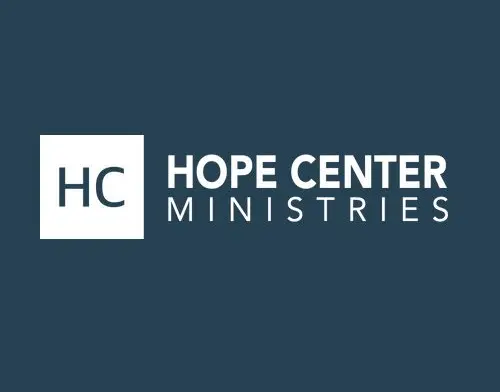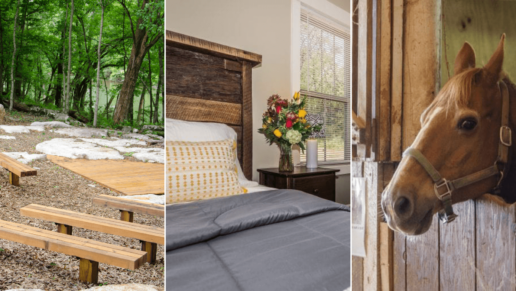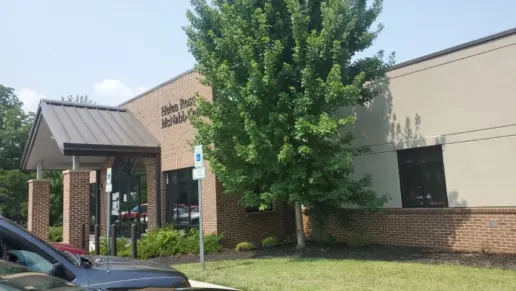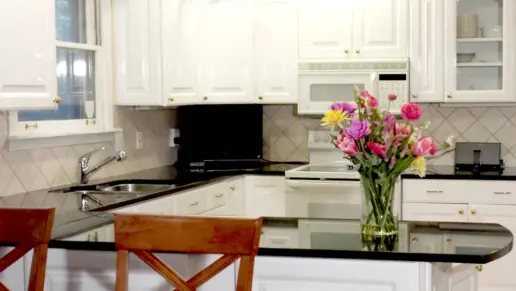About Hope Center Ministries – Dickson Center
Hope Center Ministries’s Dickson Men’s Center is in Dickson, Tennessee. It’s a faith based, 12 Step focused drug rehab for men. They provide long term residential programming and aftercare support. Their primary treatment modalities include psychotherapy, spiritual development, and recovery focused life skills training.
The residential program allows clients to focus on their recovery in a highly structured and supportive environment with premium amenities, including a private, wilderness setting. You’ll engage in intensive individual, group, and family counseling. You’ll also receive extensive, recovery focused life skills training, including courses in coping, emotional regulation, self care, wellness, and relapse prevention. Evidence based complementary therapies, including recreational therapy, are available. The program also prioritizes spiritual development and includes daily Bible study, devotionals, and worship.
They promote each client’s long term recovery and their successful reintegration into their home, workplace, and community through robust aftercare planning and support. Services may include peer coaching, career counseling, 12 Step program induction (including Celebrate Recovery), and referrals for medical, mental health, and social service programs. While you’re in treatment, an array of family support services are available for your loved ones, including dedicated Support Nights, visitation opportunities, weekly group therapy sessions, and addiction-focused educational resources.
They’re accredited by the Evangelical Council for Financial Accountability (ECFA). They accept self pay. Need based scholarships and financial aid are available contingent upon funding. If referrals are made to outside providers, those facilities may be in-network with most commercial insurance plans. Out of network benefits can vary so reach out to your provider to verify your coverage.
Latest Reviews
Rehab Score
Gallery
Location
Other Forms of Payment
Self-pay involves paying for treatment out of your own pocket. You can use savings or credit, get a personal loan, or receive help from family and friends to fund your treatment. If you don't have insurance or your insurance plan doesn't cover a specific program, self-pay can help ensure you still get the care you need.
Addiction Treatments
Levels of Care
Treatments
The goal of treatment for alcoholism is abstinence. Those with poor social support, poor motivation, or psychiatric disorders tend to relapse within a few years of treatment. For these people, success is measured by longer periods of abstinence, reduced use of alcohol, better health, and improved social functioning. Recovery and Maintenance are usually based on 12 step programs and AA meetings.
When your day-to-day life is taken over by drug use, this is known as substance use disorder. If you abruptly stop using your drug of choice, you experience withdrawal symptoms. To overcome this cycle, professional drug rehab in Tennessee is usually needed.
Opioid rehabs specialize in supporting those recovering from opioid addiction. They treat those suffering from addiction to illegal opioids like heroin, as well as prescription drugs like oxycodone. These centers typically combine both physical as well as mental and emotional support to help stop addiction. Physical support often includes medical detox and subsequent medical support (including medication), and mental support includes in-depth therapy to address the underlying causes of addiction.
Substance rehabs focus on helping individuals recover from substance abuse, including alcohol and drug addiction (both illegal and prescription drugs). They often include the opportunity to engage in both individual as well as group therapy.
Programs


Clinical Services
Group therapy is any therapeutic work that happens in a group (not one-on-one). There are a number of different group therapy modalities, including support groups, experiential therapy, psycho-education, and more. Group therapy involves treatment as well as processing interaction between group members.
In individual therapy, a patient meets one-on-one with a trained psychologist or counselor. Therapy is a pivotal part of effective substance abuse treatment, as it often covers root causes of addiction, including challenges faced by the patient in their social, family, and work/school life.
Research clearly demonstrates that recovery is far more successful and sustainable when loved ones like family members participate in rehab and substance abuse treatment. Genetic factors may be at play when it comes to drug and alcohol addiction, as well as mental health issues. Family dynamics often play a critical role in addiction triggers, and if properly educated, family members can be a strong source of support when it comes to rehabilitation.
Life skills trainings involve all the skills a person must have in order to function successfully in the world. These include time management, career guidance, money management, and effective communication. Truly successful addiction recovery is based on the ability to not only live substance-free, but to thrive. Life skills teaches the practical necessities of functioning in society, which sets clients up for success in life, and therefore sobriety.
Recreational therapy (aka therapeutic recreation) uses creative and fun activities to help with addiction recovery. Recreational therapists lead patients in entertaining and engaging activities like sports or games; art (drawing, painting, sculpture); drama, music, and dance; and/or community outings (field trips) to improve patients' physical, social, and emotional well-being.
Amenities
-
Residential Setting
Contact Information
167 Woody Crest Rd
Dickson, TN 37055



